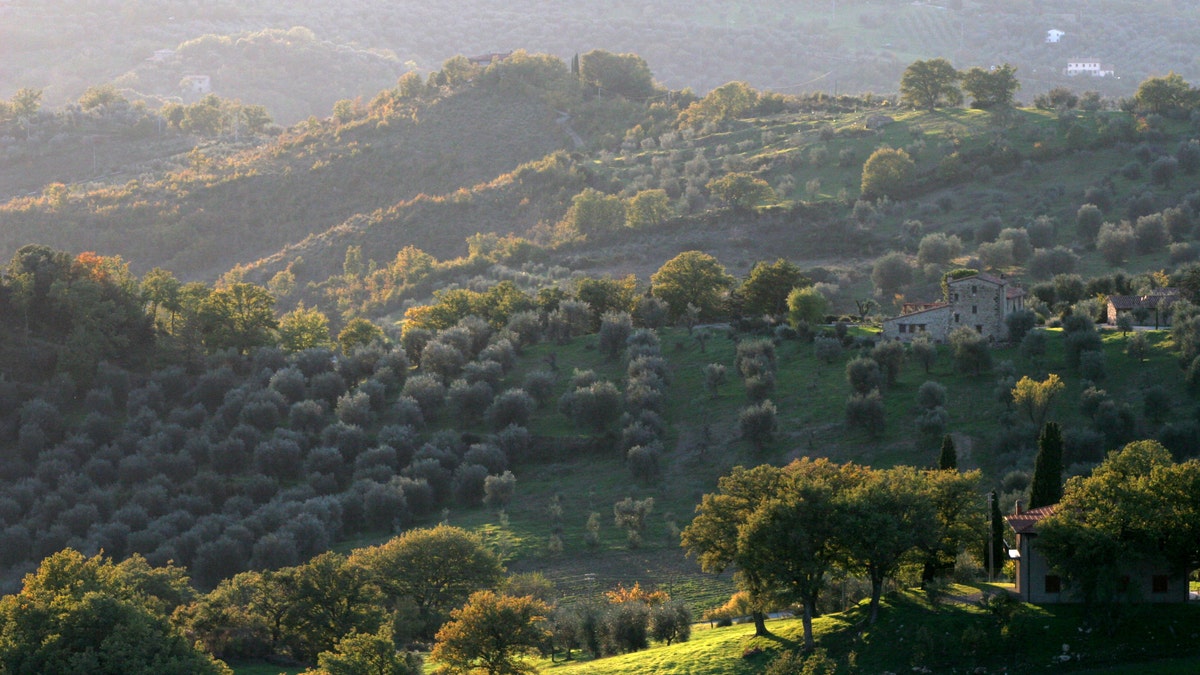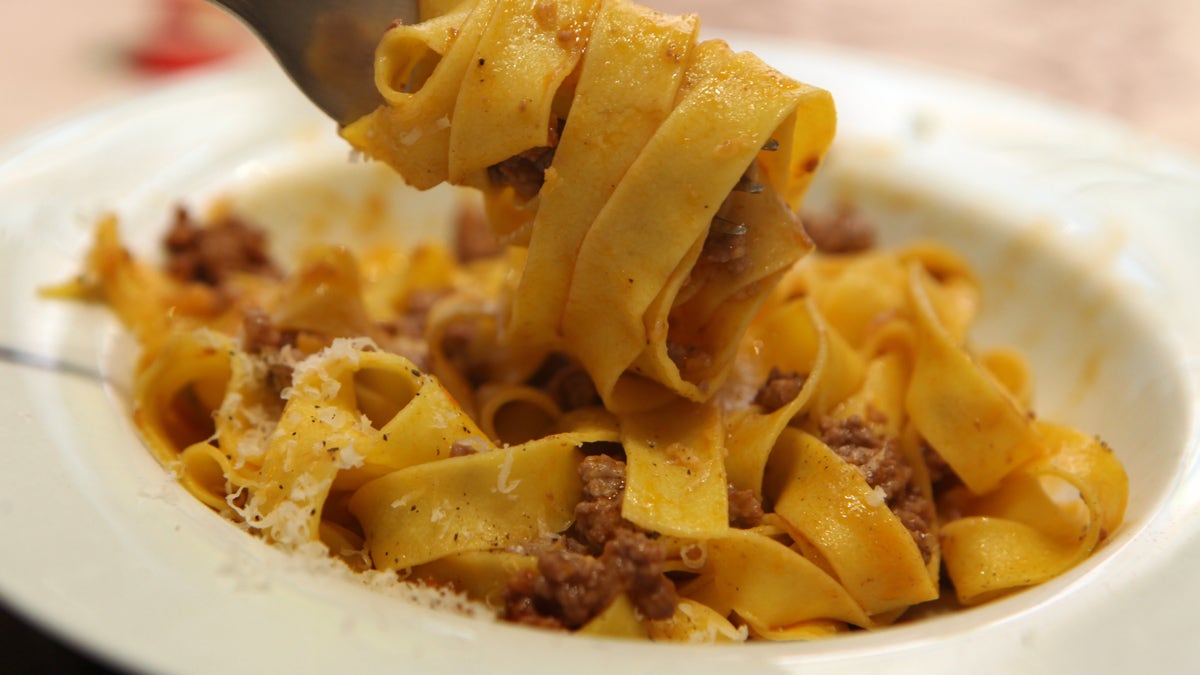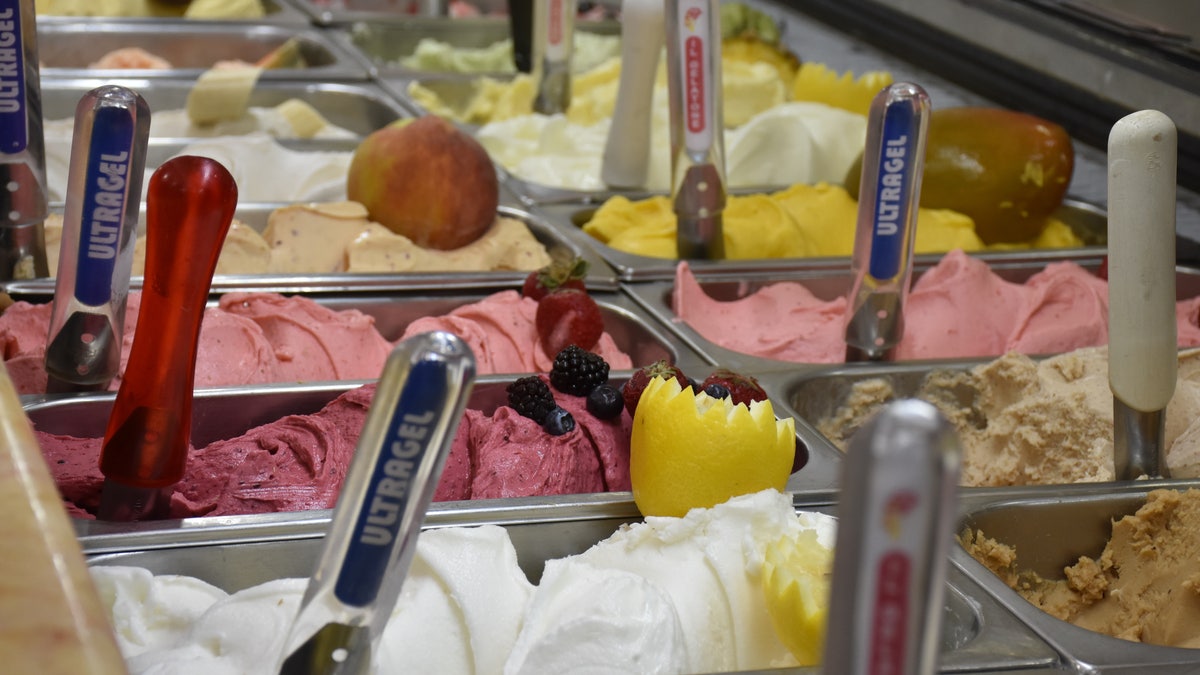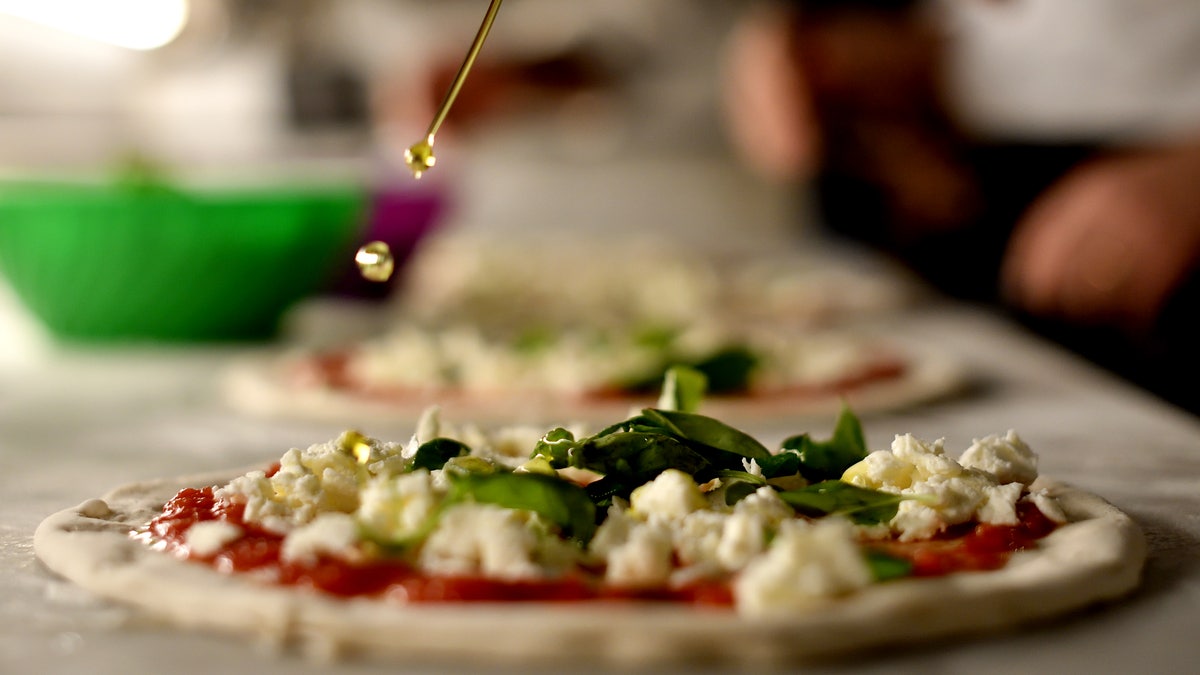Italy, a haven for food enthusiasts, invites you on a journey through its culinary wonders.
From the cobbled streets of historic Rome to the picturesque vistas of Tuscany, each region unfolds diverse flavors, telling a tale of culinary tradition and locally sourced ingredients.
PASTA QUIZ! HOW MUCH DO YOU KNOW ABOUT THE POPULAR FOOD AND TASTY CARB?
Here’s a guide to navigating the authentic tastes of Italian cuisine:
- Rome
- Tuscany
- Emilia-Romagna
- Venice
- Naples
- Sicily
In the heart of Italy, Rome has a culinary scene that blends history and flavor.
Explore the culinary wonders of Rome with beloved dishes like Cacio e Pepe, a pasta blending pecorino cheese and black pepper, and Roman-style pizza, renowned for its thin, crispy crust.
Visitors can also experience Rome’s lively markets, Campo de’ Fiori and Testaccio Market, which showcase an array of fresh produce, artisanal cheeses and aromatic spices.

The fundamental appeal of Fettuccine Alfredo lies in its luscious simplicity and the ability to highlight the quality of the cheese and pasta. (G. Marc Benevidez/Wichita Eagle/Tribune News Service via Getty Images)
Did you know that Fettuccine Alfredo has its roots right here in Rome?
Alfredo Di Lelio is credited with creating the modern Fettuccine Alfredo. Family stories recount that in 1892, Alfredo started working in a restaurant located in Piazza Rosa, managed by his mother, Angelina.
AMERICA’S 20 BEST ITALIAN RESTAURANTS
Central to Tuscan cuisine is a dedication to simplicity and quality. The fertile soil of the region provides a rich harvest of locally sourced ingredients, laying the groundwork for the creation of iconic dishes.
Tuscan bread, with its unsalted crust, serves as the backbone for the renowned “bruschetta” and “ribollita,” a hearty bean and kale soup.

Olive oil production is one of the main sources of income for people in southern Tuscany, who also rely on tourism, wine-making and growing chestnuts to make a living. (Colin McPherson/Corbis via Getty Images)
Olive oil, often referred to as liquid gold, is a jewel in Tuscany. The region’s golden elixir enhances dishes with its silk and fruity flavors, elevating everything from drizzled salads to slow-cooked stews.
Local pecorino cheese, crafted from sheep’s milk, imparts a distinctive flavor to Tuscan tables, pairing effortlessly with honey, fresh fruit or a glass of the region’s world-class wines.
Speaking of wines, Tuscany’s vineyards produce some of the finest vintages globally, including the revered Chianti and Brunello di Montalcino. Wine becomes a crucial part of the Tuscan dining experience, complementing regional specialties like “bistecca alla fiorentina,” a succulent T-bone steak grilled to perfection.
INSTANT POT BEEF RAGÙ FOR DINNER: TRY THE RECIPE
Proudly considered the birthplace of iconic Italian ingredients, Emilia-Romagna is synonymous with Parmigiano-Reggiano, the king of cheeses, Prosciutto di Parma, a world-renowned cured ham, and Balsamic Vinegar.
Emilia-Romagna’s pasta is often paired with the region’s famed ragù, a slow-cooked meat sauce that imparts depth and richness to every forkful.

Hand-made fettuccine is served with Bologna’s iconic ragù meat sauce after a cooking lesson in Bologna, Italy. (David Silverman/Getty Images)
Balsamic vinegar, aged to perfection in wooden barrels, adds a sweet and tangy nuance to dishes, elevating salads, meats, and even desserts. The city of Modena, in particular, is revered for its exceptional balsamic vinegar.
Indulge dishes like “piadina,” a thin flatbread filled with savory delights, or “cappelletti,” delicate pasta parcels with flavorful fillings.
“The medieval university city of Bologna is home to a trio of Italy’s top-ranked gelaterie, among them the Cremeria Scirocco,” reads the National Geographic website.
NATIONAL PASTA DAY: FUN FACTS ABOUT THE NOODLE
Although gelato originated in Florence during the Renaissance, the region of Emilia-Romagna has a reputation for high gastronomic standards, which means there’s less of a chance of being tricked into shelling out for a gelato tourist, continues National Geographic.
If you find gelato piled high, it’s a sign it doesn’t adhere to genuine gelato-making standards and likely contains an excess of air. This also implies that the gelato isn’t freshly made each day.
The finest gelaterias prepare just enough gelato for daily sales, and they might even sell out before closing time.

Gelato, which was a luxury dessert served at the meals of wealthy families during the Renaissance period, started to reach wider masses when production accelerated with mechanization after the Industrial Revolution.
Seafood takes center stage in Venetian food, reflecting the city’s proximity to the Adriatic Sea.
From the succulent “risotto al nero di seppia,” enriched with cuttlefish ink, to the delicate “baccalà mantecato,” a whipped codfish spread, each dish pays respect to the maritime heritage that has sustained Venetians for centuries.
The city’s Rialto Market stands as a vibrant hub of culinary treasures, where fresh produce, seafood and local specialties beckon both locals and visitors.
CHICKEN ALFREDO LASAGNA WITH SPINACH FOR A CROWD-PLEASING DINNER: TRY THE RECIPE
Naples is the birthplace of pizza, and its iconic Neapolitan pizza, with its thin, chewy crust and simple yet exquisite toppings, this is a culinary masterpiece recognized globally.
The Margherita, adorned with tomato, mozzarella, basil and a drizzle of olive oil, pays recognition to Queen Margherita of Savoy and captures the essence of Naples’ dedication to quality ingredients.

The art of the Neapolitan Pizzaiuolo (pizza maker) has been put on its prestigious Intangible Cultural Heritage list, said UNESCO. Pizzaiuolo is a culinary practice consisting of four different phases relating to the preparation of the dough and its baking in a wood-fired oven. (Tiziana FabiI/AFP via Getty Images)
Seafood holds a prominent place in Neapolitan cuisine, thanks to the city’s proximity to the Tyrrhenian Sea.
“Spaghetti alle vongole,” featuring tender clams, garlic and white wine, embodies the simplicity and freshness that defines Naples’ approach to seafood.
The “frittura di paranza,” a delightful mix of fried small fish, is a crispy and flavorful street food.
THIS APP WILL TELL YOU IF YOUR OLIVE OIL IS REALLY FROM ITALY
A harmonious fusion of Greek, Arab, Norman and Spanish traditions, Sicilian cuisine is a testament to the region’s history.
Sicilians masterfully prepare dishes like “pasta con le sarde,” a flavorful pasta paired with sardines, wild fennel and pine nuts, showcasing the seamless blend of sweet and savory notes.
CLICK HERE TO GET THE FOX NEWS APP
The “arancini,” golden-fried rice balls often filled with ragù, peas and mozzarella, epitomize Sicily’s love for street food.
These delectable snacks, with their crispy exterior and flavorful fillings, are a culinary delight enjoyed by locals and visitors alike.
Buon viaggio e buon appetito!






